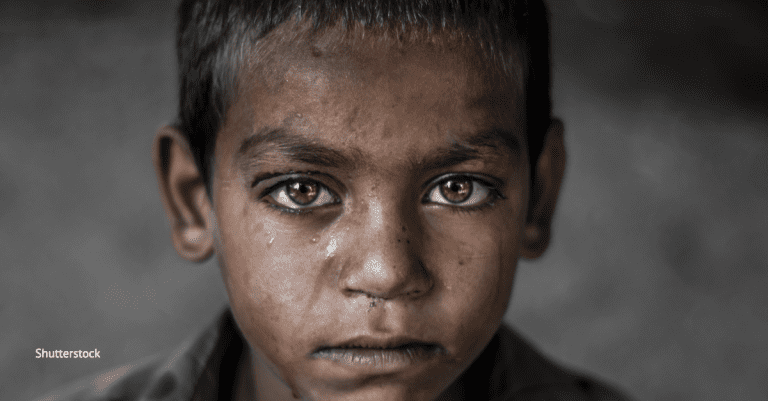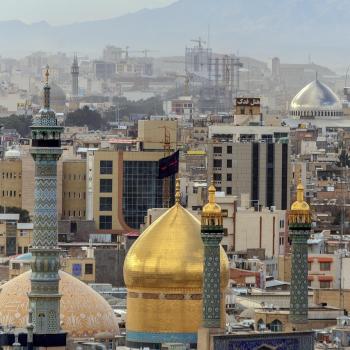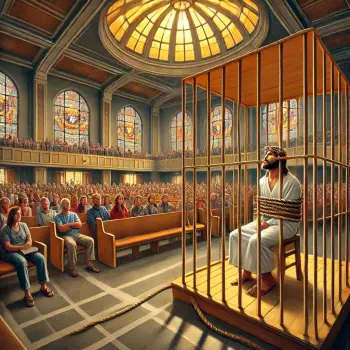 As some of you know, I have been blessed to be teaching a number of groups of pastors and leaders via zoom for the past 9 months now. When we began Determinetruth last Spring, I didn’t imagine I would be ministering to pastors in India.
As some of you know, I have been blessed to be teaching a number of groups of pastors and leaders via zoom for the past 9 months now. When we began Determinetruth last Spring, I didn’t imagine I would be ministering to pastors in India.
But the Lord has opened the door and now I am meeting several times per month with pastors from all over the country of India.
Recently I was talking with another pastor, and he was asking me, “what is it that you are teaching the pastors in India?”
I would say that a lot of what I do is encourage and pray for them.
I have also realized that these pastors are starving for the Word and for biblical teaching.
So, I replied to this pastor that I was focusing on the Gospel, the Kingdom of God, and what it means both to be a disciple and to make disciples.
It just so happened that later that evening I was working on a teaching for the pastors in India. I happened to be rewriting a message I had previously taught in an American context.
As I edited the message, I was struck by the contrast between how I had taught this lesson in American churches and how I needed to completely reframe it for my brothers and sisters in India.
The passage was Luke 6 (I have recently been teaching through the Gospel of Luke with a couple of the groups).
In Luke’s version of the Jesus story, Jesus’ teaching in Luke 6 just so happens to be His first large-scale public message.
The passage begins with Luke’s version of the beatitudes (6:20-26; cp Matt 5:3-10). Unlike Matthew, who has eight “blessings,” Luke has only four. And, unlike Matthew, Luke contrasts the four “blessings” with four corresponding “woes”—Matthew reserves his woes for a sermon in Matt 23.
A careful look at Luke’s four blessings and his four woes shows that Luke has carefully arranged them.
First, observe that each of the four blessings begin with “blessed” and have “for” beginning the second clause:
Luke 6:20-23
Blessed are you who are poor, for yours is the kingdom of God.
Blessed are you who hunger now, for you shall be satisfied.
Blessed are you who weep now, for you shall laugh.
Blessed are you when men hate you, and ostracize you, and insult you, and scorn your name as evil, for the sake of the Son of Man. Be glad in that day and leap for joy, for behold, your reward is great in heaven. For in the same way their fathers used to treat the prophets. (NAS)
Now observe the four “woes.” Note that each begins with “woe” and they also have a “for” clause:
Luke 6:24-26
woe to you who are rich, for you are receiving your comfort in full.
Woe to you who are well-fed now, for you shall be hungry.
Woe to you who laugh now, for you shall mourn and weep.
“Woe to you when all men speak well of you, for their fathers used to treat the false prophets in the same way (NAS)
Let’s go a little deeper.
Note that the first “blessing” and the first “woe” are contrastive: “poor vs rich.”
Luke 6:20 Blessed are you who are poor, for yours is the kingdom of God.
Luke 6:24 woe to you who are rich, for you are receiving your comfort in full.
The second set is also contrastive: “hunger vs well-fed.”
Luke 6:21 Blessed are you who hunger now, for you shall be satisfied.
Luke 6:25 Woe to you who are well-fed now, for you shall be hungry.
And if you haven’t figured it out by now, let me help: the third set is also contrastive: “weep now vs laugh now.”
Luke 6:21 Blessed are you who weep now, for you shall laugh.
Luke 6:25 Woe to you who laugh now, for you shall mourn and weep.
And, yep, I knew you were bright, the fourth set is also contrastive: “scorned vs spoken well of.”
Luke 6:22 Blessed are you when men hate you, and ostracize you, and insult you, and scorn your name as evil, for the sake of the Son of Man. Be glad in that day and leap for joy, for behold, your reward is great in heaven. For in the same way their fathers used to treat the prophets
Luke 6:26 “Woe to you when all men speak well of you, for their fathers used to treat the false prophets in the same way
We could, of course, go much further and note that each of the “for” (which could be translated as “because”) clauses contrast the eternal state of the two. Thus, “those who hunger now will be well-fed and those who are well-fed now will hunger” (6:21, 25).
What is most significant, however, is the fourth blessing and woe set. Note that those who are hated and scorned for the “sake of the Son of Man” (6:22; can’t leave that part out) will be greatly rewarded because they are being treated the same way the prophets used to be. And those who are spoken well of now (6:26) are being treated just as the false prophets were.
The association with the prophetic voices (6:22, 26) confirms that Jesus is not simply talking about the current plight of individuals, but He also believes that the first group is fighting against the systems of the world that bring about the injustices that create poverty and wealth gaps.
Note also that the poor and the hungry are blessed but so are the persons who are weeping. Such persons are weeping at the injustices that create poverty and hunger. That is why they are compared with the voice of the prophets.
I suspect that I know what you are thinking: “Aren’t some rich persons blessed?” Well, “no. At least not in Jesus’ speech.”
Jesus says the rich are not blessed but are the ones who are laughing now. The rich are also associated with the false prophets because they have no intention of overturning the systems of oppression since it is through these systems that they obtained their wealth.
Now, I suspect I again know what you are thinking: that is not always true), so allow me to clarify.
The Roman world and its economy were established in order to maintain the extravagant (an understatement but I can’t think of another adjective at the moment) lifestyle of the few (most estimates place it as 3% of the population),[1] even though it meant impoverishing the vast majority of the people and enslaving others.
Now, you might be thinking “that was then, but this is now.” Our contemporary world does not have such blatant injustices. Well, I am not an economist, but an historian. All I can say is that I know of no society in history in which such was not the case. Sure, maybe some societies were “worse” than others. But until we confront the fact that the wealth we experience in America was built on the back of slavery and subjugation of others, I am not sure we are going to get very far in making changes.
Nonetheless, let’s get back to Luke and my quandary.
The sermon I had written for an American audience addressed in detail the fact that Matthew wrote, “Blessed are the poor in spirit” (5:3), while Luke clearly has those who are actually poor in mind (after all, Luke contrasts the poor with the “rich”; 6:20, 24). That Jesus was definitely intending to indicate those who were truly poor and not just “poor in spirit” is evident in that Luke notes Jesus’ inaugural speech in the synagogue in Nazareth in which He cites Isa 61:1-2 saying, “The Spirit of the Lord is upon Me, because He anointed Me to preach the gospel to the poor . . . ” (Luke 4:18).
As I taught this in American churches you can see how I had to nuance the text around our Western rationalizations—which we do in order to soften the text and allow us to affirm “Amen” and remain comfortable in our wealth—in order to allow the text to speak into our context and yet not be so harsh that I unjustly condemned all who were present (some of whom I am sure give quite generously).
When I was editing the message, however, I had a much different task at hand. If I was not careful, I could come across as a wealthy, comfortable American who was encouraging them to be content in their poverty. Not a good idea.
Allow me now to skip some of the points of application that I provided to our brothers and sisters in India and note how I addressed the elephant in the room: i.e., the fact that the text calls us to speak against unjust systems that perpetuate poverty for the mass and wealth for the few and that many American Christians are enjoying said wealth and neither helping to provide for the many needs of the pastors in the room (via zoom) nor speaking against such injustices.
My message was to “pray for the church in America.”
I commented, “I wonder if many of you look at America and wonder why Christians in America are not helping their brothers and sisters in India and other parts of the world. Well, I wonder the same thing.”
I also noted, “I see churches all around me that have too much money. I see many wealthy people in these churches that give very little. And I am sad.”
“I am sad because I see pastors like all of you. I see how hard you work for the kingdom of God and how much more you want to do. I see your needs. And I know many here in the US that could help you, but they don’t. And I am grieved.”
Then I closed with some words of encouragement.
“Be careful about the desire to become rich. I know it is tempting and you look at money as something that will help you do more ministry. I know that you might build nicer churches and provide more outreach programs to your community.”
“But money is dangerous.”
I guess I thought I should share this with you.
NB: My goal is to keep these posts free of charge. I do not intend to ever hide them behind a paywall. I can only do this if those of you who have been blessed by them and can afford to give ($5, $10, $25, or more/month) do so. You can give a tax-deductible contribution by following this link.
Please share this post and let others know about determinetruth.
If you wish to view this blog on your smartphone through the Determinetruth app simply download the “tithe.ly church” app on your smartphone and insert “determinetruth” as the church name you wish to follow. Once it is loaded, simply click on the “blog” icon and they will automatically load.
If you would like to have Rob speak at your church or organization in person or via zoom, please let us know by filling out the contact info on the Contact me tab on this site.
[1] See Warren Carter, The Roman Empire and the New Testament.















